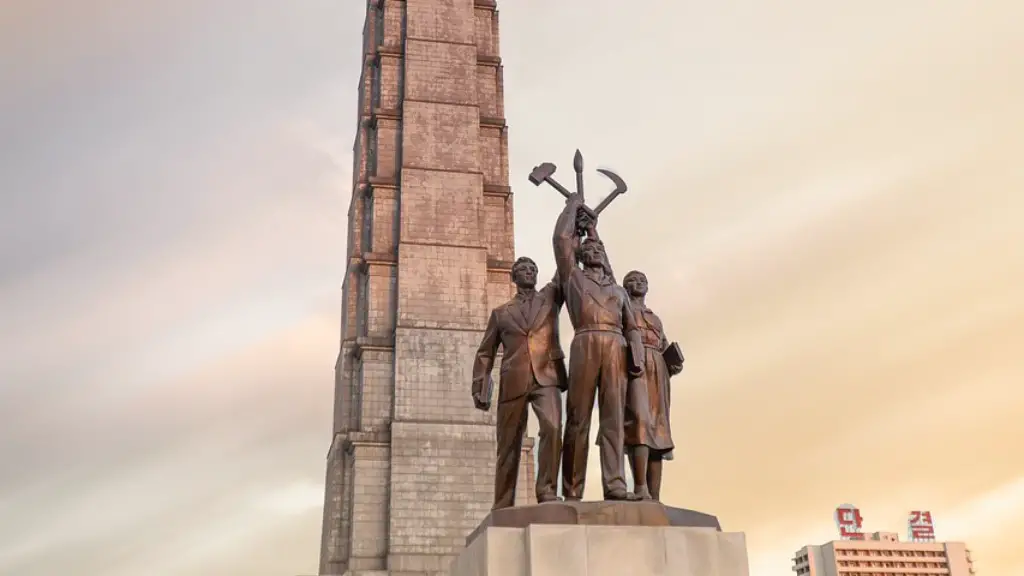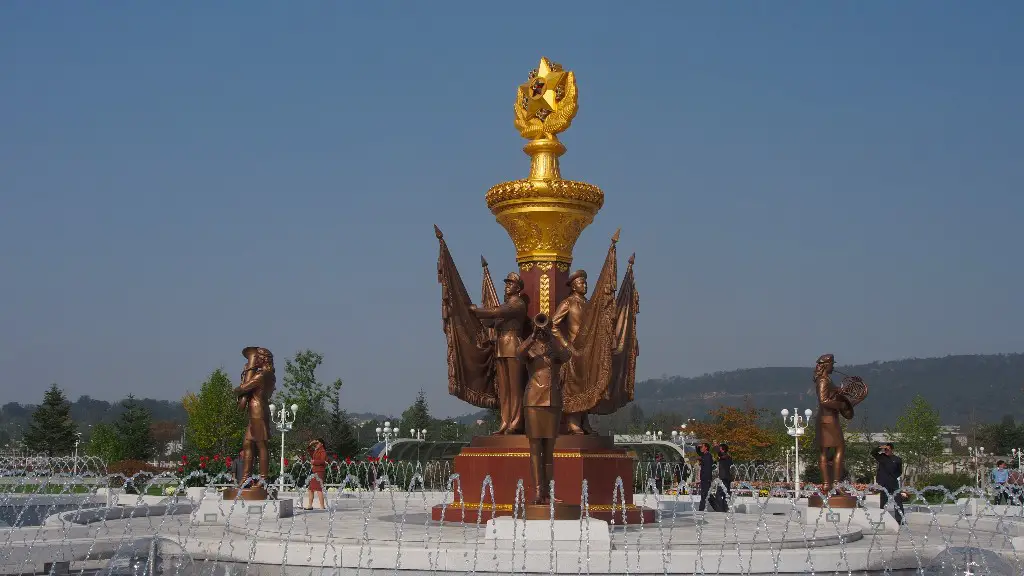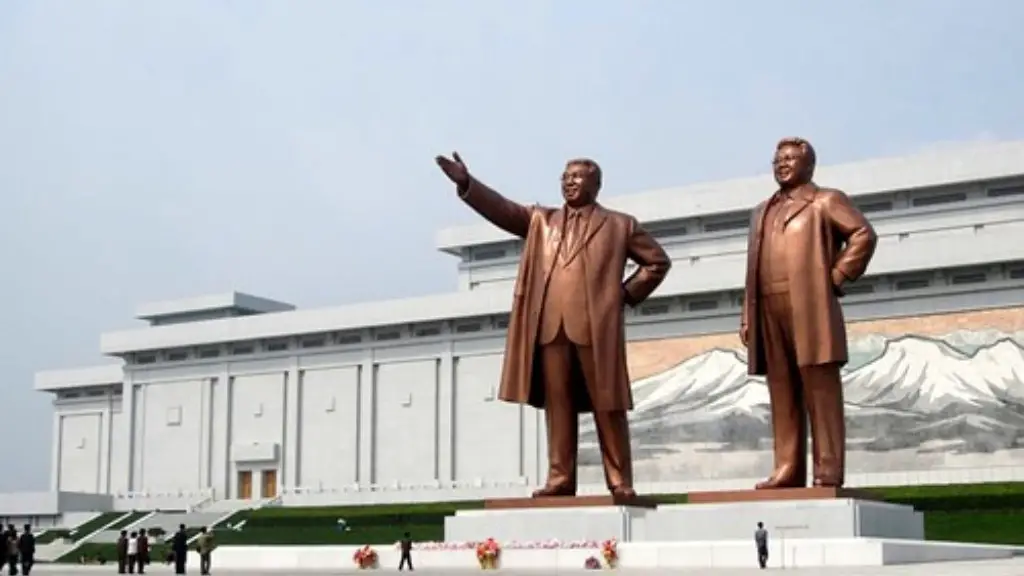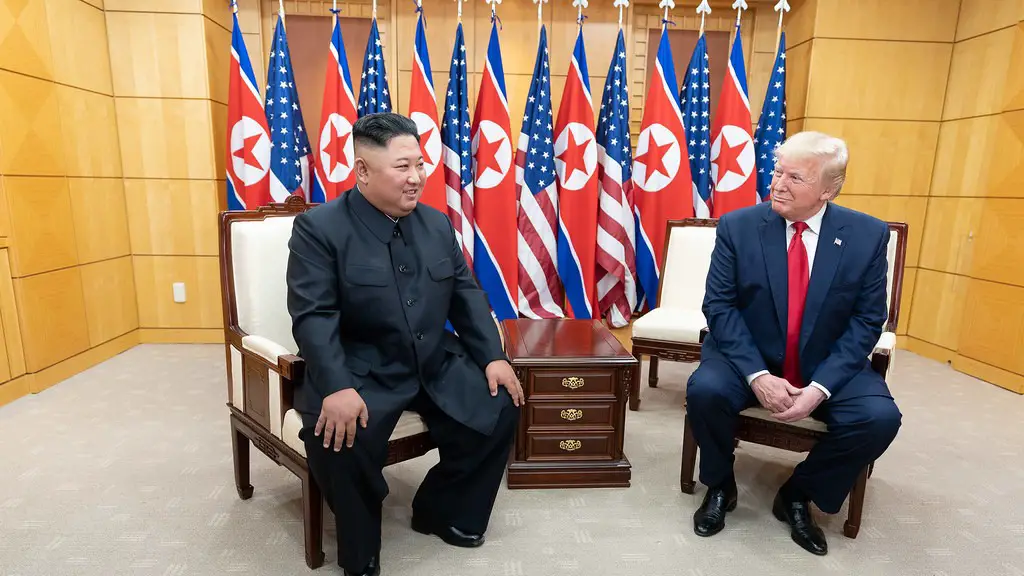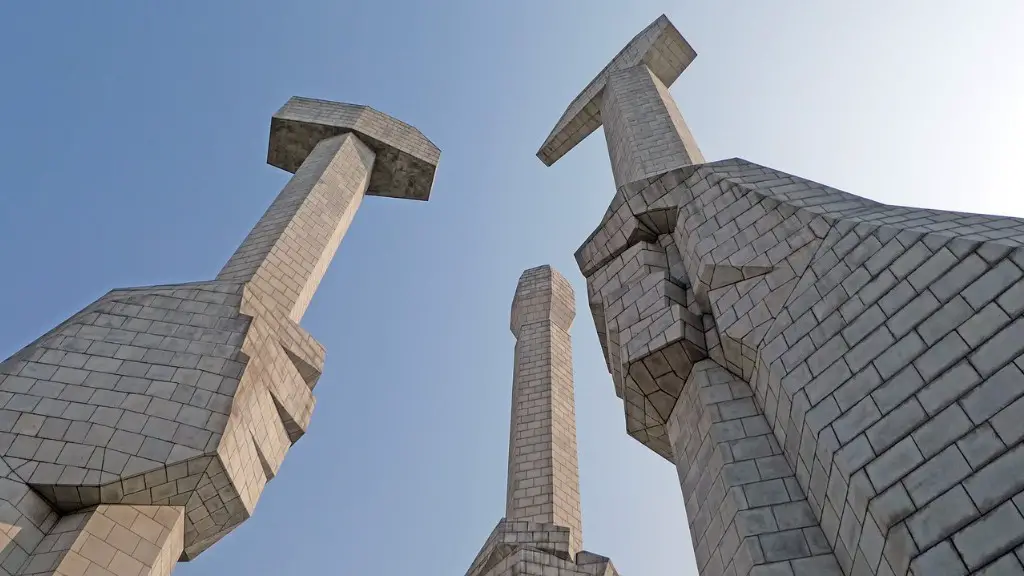Why Has North Korea Been So Quiet?
North Korea, a secretive and isolated nation, has long been a source of anxiety for regional powers, the United States and beyond. Typically the country is the centre of attention on the international stage, but following its February 2020 missile launch, North Korea has been unusually muted with no provocations or further launches since.
The United States has been seeking a diplomatic solution throughout Donald Trump’s presidency. This campaign involved an unprecedented summit between the two countries’ leaders in 2018.
Experts theorise that North Korean leader Kim Jong Un is attempting to avoid further economic sanctions, or even a war, by calming the rhetoric and not precipitating any further action. China and the United States have historically had a tense relationship with North Korean under Kim Jong Un as both states have routinely imposed sanctions on the peninsula nation.
It is possible that North Korea is preparing for what it deems to be an adequate response if regional powers continue to apply pressure for denuclearisation, further deepening the geopolitical crisis. US President Donald Trump has been adamant that North Korea is not to acquire nuclear weapons and has continued the push for the “complete, verifiable and irreversible denuclearisation of the Korean Peninsula.”
Pyongyang has repeatedly declared its commitment to peace and the denuclearisation of the peninsula, claiming this as a core tenet in its foreign policy. However, the lack of concrete action has caused some to question the true motives of the regime. Taipei-based China-policy analyst Flora Chang argues that the true intentions are hidden beneath the few public displays of goodwill.
Chang suggests that behind Kim Jong Un’s desire for dialogue, there is a strong willed, and often violent, leader in power seeking to hold the peninsula, if not the world, in his grasp. “It’s in his overriding political legitimacy and his increasingly explicit calls for the Korean people to look to him alone as the only leader,” Chang says. “The North Korean state exists, ultimately, to serve the purposes of Kim Jong Un and his family.”
It is unlikely that the North Korean government will budge on its long tradition of secrecy and isolationism. There is a deeper issue here, a power struggle between North Korea and the West. North Korea is determined to escape what it perceives as US and other Western powers’ grip of intimidation. Considering the long standing conflict between North Korea and the United States, it is understandable that North Korea’s motives for peace remain uncertain.
Industrial and Agricultural Development
The relative diplomatic peace between North Korea and its external foes has provided the government an opportune time to focus internally, furthering and developing industries such as agriculture and energy. According to a study conducted by the International Food Policy Research Institute and the United Nations, North Korea’s agricultural output increased significantly between 2010 and 2016.
The study attributes the increase in agricultural production to both the harvesting of new high-yield crop varieties and to the introduction of improved fertiliser and other farming inputs. North Korea has sought to develop extensive irrigation systems and aqueducts to expand its agricultural capabilities.
In the energy sector, North Korea is seeking to develop its industry through the construction of new gas and oil refineries, nuclear power plants and a new coal-powered power station. These projects require the utilisation of expensive foreign machinery and technologies, components which are difficult to acquire without due to the presence of UN Security Council sanctions.
Recent satellite imagery suggests a large industrial complex is being constructed near Pungse, a region located in the north-western part of the country. The complex is thought to specialise in the production of components essential for the construction and maintenance of automobiles. The facility is reportedly being built by the Korean Ryongbong General Corporation, a military-run entity suspected of connecting to weapons of mass destruction and global arms trading.
Unemployment and Poverty
Persisting strains in North Korea’s economy have disproportionately affected its citizens.Current estimates report a poverty rate of 94%, with an estimated 17.4 million citizens classified below the poverty line. Unemployment sits just below 17%, and is a primary contributing factor to the country’s ongoing economic struggle. Though the country’s economic growth has improved somewhat in the past decade, economic sanctions, internal corruption and the absence of foreign investments continue to plague the economy.
The country was already burdened by the absence of formal banking and currency exchange systems, before being further strained by the United States’ 2018 sanctions.
The burden of the declining economy is particularly felt by the nation’s most vulnerable citizens. UNICEF reports a severe health crisis in North Korea, with over 470,000 children under five currently suffering from acute malnutrition. North Korea’s infant mortality rate is among the highest in the world.
Though the nation’s citizens have little control over their government’s decisions, their well-being remains intrinsically tied to those of the regime. Kim Jong Un’s leadership either improves or detracts from the basic needs and rights of North Korea’s people, who are currently receiving little support from their government or international institutions.
Political Openings
North Korea’s newly found political peace has spurred hopes of the nation expanding and opening its society, albeit in a slow and incremental way. The 2018 summit between the two countries featured signs of intimate political interaction and willingness to cooperate. At the PyeongChang Winter Olympic opening ceremony of the same year, North and South Korea paraded together under a unified Korean flag.
These were promising signs of reconciliation between the two states and eased tensions somewhat, leading to further talks between both nations regarding peace and denuclearisation resolutions.
Although the American and Chinese governments pushed strongly for further, irreversible denuclearisation measures, the process was agreed to be done incrementally to avoid conflict. In the end, Kim Jong Un decided he was not willing to meet the demands of both countries, resulting in the Korea-US summit in February of 2019 ending without a conclusive result.
The support for North Korean international integration has been ever present. The European Union, China and the Russian Federation has lobbied the UN Security Council to relax its sanctions on the state. The success of those attempts is yet to be seen.
Media Outreach
The government has actively worked to soften North Korea’s international image by establishing media alliances, sponsoring sporting events and increasing its online presence.
In 2014 North Korea created the Korean Friendship Association (KFA) to help spread the state’s propaganda and soften its international image. The KFA has had remarkable success expanding North Korea’s international presence, establishing several branches worldwide and increasing its online presence by the introduction of several foreign-language websites.
In June 2017, an agreement was reached between North and South Korea to restore Military Hotline communication, which had been unavailable for several months prior. The two countries worked to reduce animosities and declarations of threats. In December of the same year, North and South Ministerial talks began.
North Korea has made efforts to use international sporting events to improve its image, often presented as a “peaceful” nation at odds with the rest of the world. It has participated in the Winter and Summer Olympics since 1972 and 2000 respectively, as well as in several other large international sporting events. In October 2018, the state made an agreement with FIFA to jointly host the 2023 Women’s World Cup.
International Aid
The United States are one of the primary contributors to humanitarian aid programs in North Korea, providing over $100 million since 1995. The US government’s aid is primarily directed towards providing North Korea with much-needed food aid. This aid is primarily provided through the United Nations World Food Programme.
North Korea has also requested aid from China and other regional allies, including Russia and Iran. China is the largest foreign donor to North Korea and provides the state with roughly $5.5 billion to $8 billion per year in aid. China has continued to provide aid despite the Trump administration’s aggressive diplomatic policy and imposition of further economic sanctions.
There have been attempts by the South Korean government to increase aid and send economic incentives to North Korea as part of its diplomatic mission. In September 2018 South Korean officials proposed the delivery of US$1.68 billion in aid to North Korea, though the US government expressed its disapproval of the plan.
Conclusion
In summary, North Korea’s recent avoidance of provocative action, developments to its domestic industries and media outreach attempts are all signs that the Kim Jong Un regime is attempting to build diplomatic peace in the region, though this peace is yet to be seen in the form of tangible action. Furthermore, the nation continues to struggle with the effects of poverty, unemployment and a deteriorating health system due to continuing economic strife. The international community’s response to the situation remains divided, with some countries attempting to offer aid and other imposing more sanctions.
